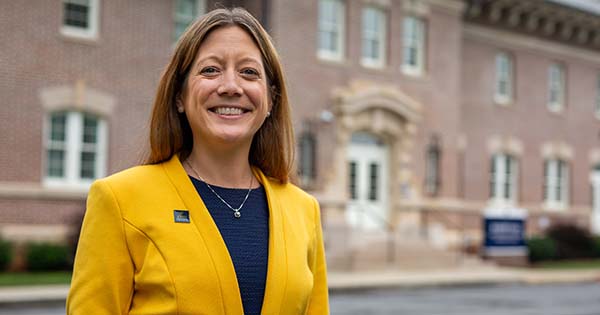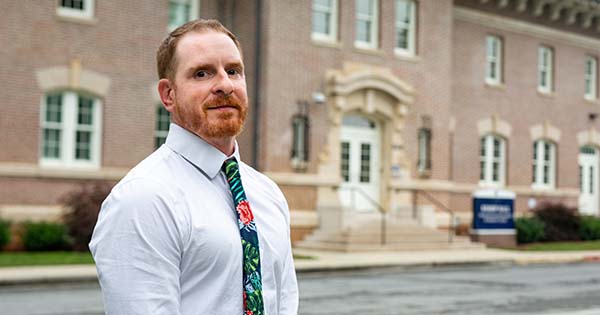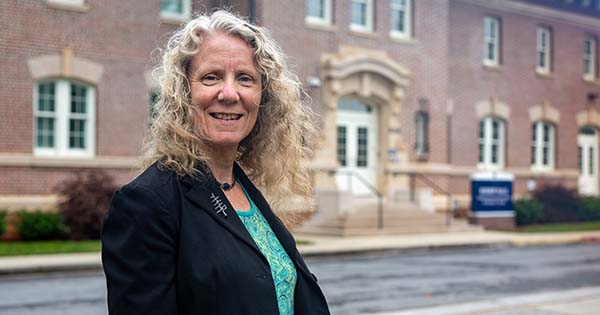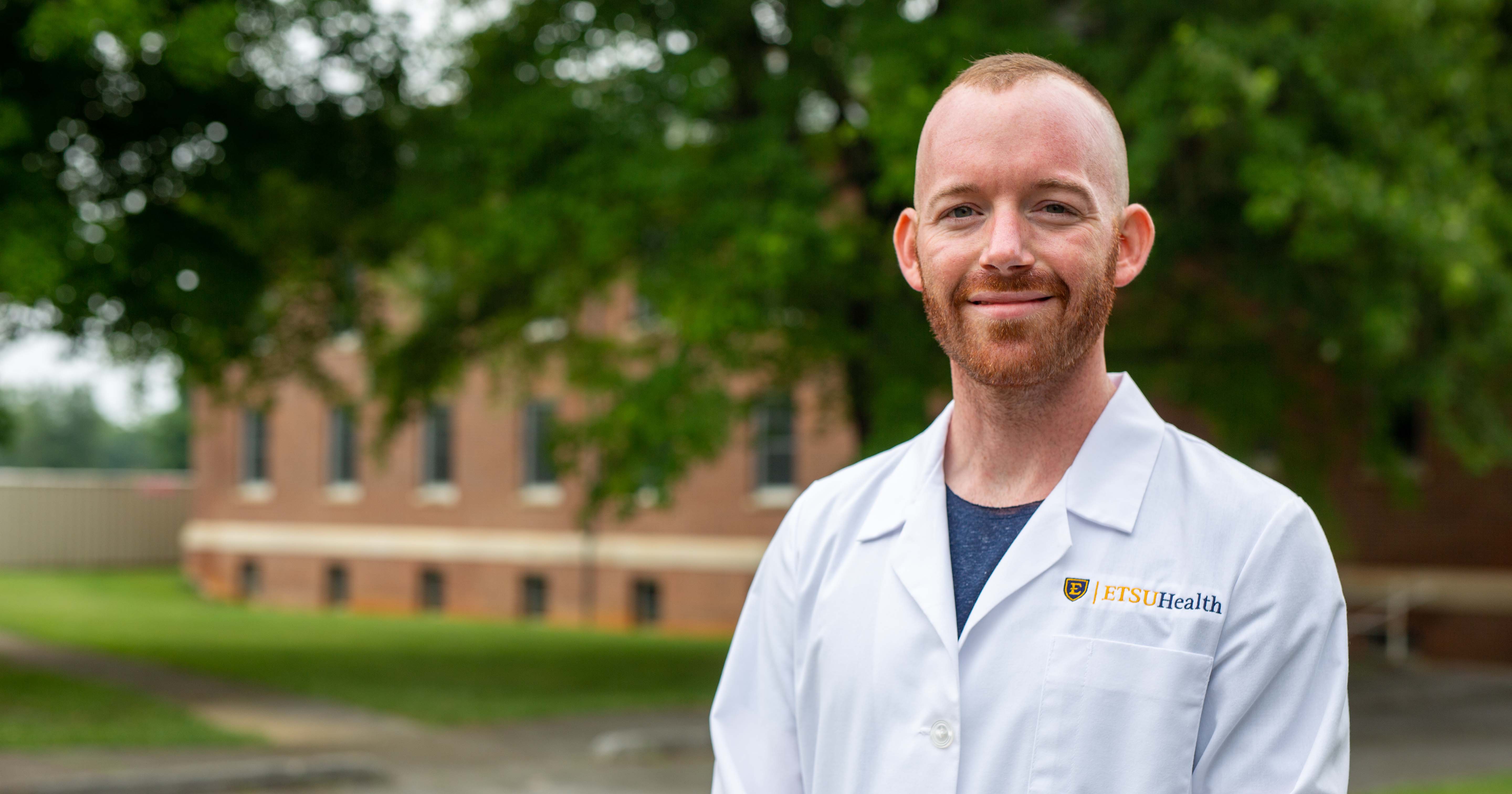JOHNSON CITY, TN — East Tennessee State University is celebrating Healthcare Simulation
Week, Sept. 13-19, with special recognition and events planned for the health care
simulation professionals who work with the Center for Experiential Learning (CEL)
at the Mountain Home VA campus at ETSU.

CENTER FOR EXPERIENTIAL LEARNING
Dr. Caroline Abercrombie, senior director of experiential learning
“Experiential learning focuses on creating innovative learning opportunities that
result in a meaningful impact utilizing the most sophisticated technology available
to provide a safe, yet realistic environment to develop clinical skills through health
care simulation,” said Dr. Caroline Abercrombie, senior director of experiential learning.
“Not only do we want to use this week to celebrate the people who work in health care
simulation at ETSU, but we also want to let the public know why it is so important
to our students and our community.”
ETSU has three areas within its CEL, including the Simulation Laboratory, the Simulation
Standardized Patient Program, and the Center for Surgical Innovation and Training
in the Anatomy Laboratory at Quillen College of Medicine.
“The learning laboratories focus on task training, mannequin-based simulation, and
embedding learners from all five ETSU Health colleges in simulated clinical environments,”
Abercrombie said. “The laboratories support undergraduate medical education, graduate
medical education, interprofessional education programs and continuing professional
development.”
The Simulation Laboratory

The Simulation Laboratory
Managed by Andy Berry, the Simulation Laboratory at ETSU consists of six simulation
rooms at ETSU’s Bishop Hall (Interprofessional Education and Research Center) that
mimic the real-life patient care setting.
“Our labs use mannequin-based simulation, which uses high-fidelity simulators,” said
Andy Berry, simulation lab manager. “These simulators are mannequins that physiologically
respond to treatment like what would occur in real-life patients.”
The six simulation rooms are flexible spaces that can be manipulated to incorporate a multitude of scenarios and real-life teaching environments that range from outpatient examination rooms to inpatient rooms in areas such as the emergency department, intensive care unit, labor and delivery suite and an operating theater.
ETSU’s laparoscopic surgery simulator has become a more popular training tool in recent
months among surgery residents, who because of the COVID-19 pandemic and its effect
on elective surgeries, have used the simulator to meet their required hours of surgical
training since many real-life surgical procedures have been halted or postponed due
to the pandemic.
Simulation Standardized Patient (SP) program
The Simulation Standardized Patient (SP) program is also utilized by students from across the ETSU Health colleges to give them a safe place to practice their communication and physical exam skills.
“Our SPs ‘become’ the patient with all its many facets."
A standardized patient is a person trained to portray a realistic patient, their family
member or others to create a

Simulation Standardized Patient (SP) program
Perry Butler, Simulation SP manager
“Our SPs ‘become’ the patient with all its many facets,” said Perry Butler, Simulation
SP manager. “They might have the characteristics of a stroke or a burn victim, complete
with props and special effects makeup. Being an SP takes a special mix of skills:
teaching, acting and a love of working with students.”
“One exciting new event we participated in was a telehealth training event for our
medical residents,” Butler said. “Two SPs worked together – one being the standardized
patient and the second a standardized professional. This aided the residents in learning
how to reach out to a team member of a different discipline to help with specific
patient issues.”
The Center for Surgical Innovation and Training
Robert Becker manages the Gross Anatomy Lab at Quillen College of Medicine, where the Center for Surgical Innovation and Training is currently under construction.

The Center for Surgical Innovation and Training
Robert Becker manages the Gross Anatomy Lab at Quillen College of Medicine, where
the Center for Surgical Innovation and Training is currently under construction.
“Several years ago, the anatomy faculty and staff incorporated a non-traditional embalming
approach (Thiel embalming) that provides a much more realistic preservation utilized
for teaching a variety of procedural and physical exam skills in the curriculum,”
said Robert Becker, manager of the Gross Anatomy Lab. “As this idea continues to evolve,
we are now beginning construction on the CSIT lab to provide students with the opportunity
of practicing procedures on these ‘surgical donors’ to aid in their knowledge before
beginning residency.”
Currently, students can simulate anything from airway management and intubation skills
to lumbar punctures, ultrasound-guided nerve blocks, laparoscopic and arthroscopic
examinations/evaluations and more. CSIT also hosts physicians in the community, including
cardiothoracic surgeons, to aid in new surgical techniques.
“We are so proud of the 75 employees who work with our CEL programs. Their efforts
are appreciated and essential year-round, but is special to have this week set aside
to recognize them for what they do so well every day,” Abercrombie said.
Celebrated by the Society for Simulation in Healthcare, Healthcare Simulation Week recognizes global professionals who use simulation to
improve the safety, effectiveness and efficiency of health care delivery.
To learn more about ETSU’s Center for Experiential Learning, visit www.etsu.edu/com/simlab/.